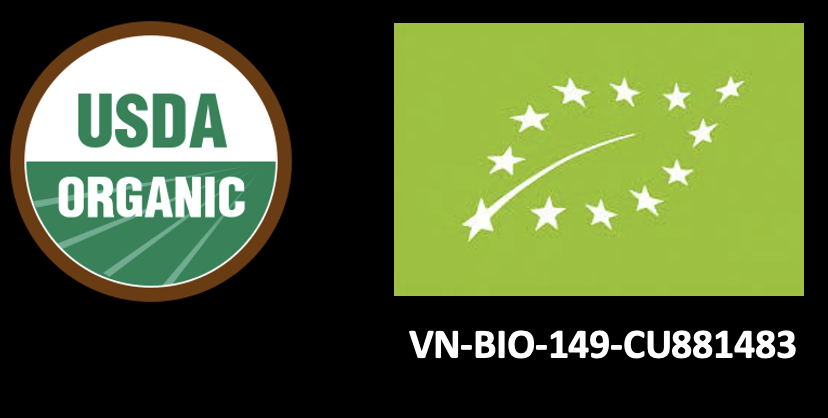
WHY ORGANIC?
Vietnam's agricultural sector is undergoing a significant transformation, with organic farming emerging as a promising avenue for sustainable development and improved livelihoods for farmers. By embracing organic practices, Vietnamese farmers are not only producing high-quality, healthy food but also contributing to the preservation of the country's natural resources and promoting rural development.
Organic food is food produced using methods that comply with the standards of organic farming. These standards vary worldwide, but generally, organic farming features practices that:
Cycle resources: Promote the use of natural resources and minimize waste.
Promote ecological balance: Conserve biodiversity and protect the environment.
Avoid synthetic chemicals: Prohibit the use of most synthetic pesticides, fertilizers, and genetically modified organisms (GMOs).
WHAT IS
ORGANIC FOOD?
HOW ORGANIC FOOD IS GOOD FOR THE SUSTAINABILITY DEVELOPMENT?
Environmental Sustainability: Organic farming practices, such as crop rotation, natural fertilizers, and reduced pesticide use, help to protect the environment by:
- Preserving soil health and preventing erosion
- Conserving water resources
- Reducing pollution and greenhouse gas emissions
Improved Farmer Livelihoods: Organic farming can offer farmers several economic and social benefits, including:
- Higher market prices for organic products
- Increased income stability due to reduced reliance on chemical inputs
- Improved access to markets and value chains
- Enhanced community resilience and social cohesion
Food Safety and Quality: Organic products are produced without the use of synthetic pesticides and fertilizers, ensuring a safer and healthier food supply for consumers.
This is why organic goes beyond just food—it's about living in balance with nature and preserving the planet's health.
That's why we're dedicated to making 100% organic food the norm.

